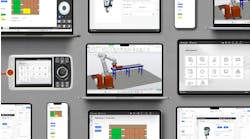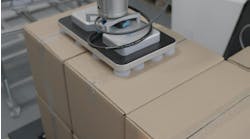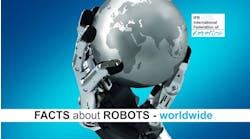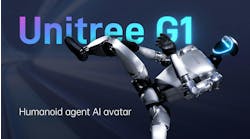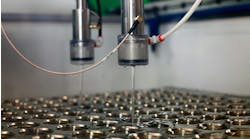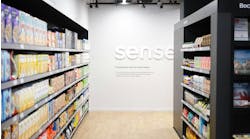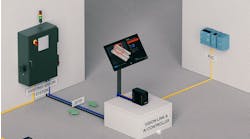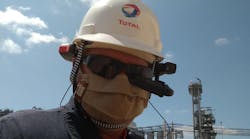When a complex piece of equipment starts exhibiting unusual behaviors, if often takes a team of people to pinpoint the exact issue at hand. Naturally, timeliness is a crucial component to keeping costs down and equipment running. And, even within a large company like Total S.A., it is rare to have all the experts needed to accurately resolve a problem in the same location, at the same time. Instead, solving these problems usually requires collaboration.
As a multinational organization, Total is quite fortunate to have a team of SMEs strategically located around the world, which provides access, but does not necessarily facilitate seamless collaboration. “Normally when there is a problem operators start to by collecting data (temperature, pressures and flow meters), and then work to answer plenty of SME questions so the experts know exactly what is occurring,” Eric Duchesne, senior vice president manufacturing and project division, Total Refining and Chemicals tells IndustryWeek.
Understandably, it can quickly become a long drawn out process. After all, an SME cannot see the internals of a reactor, as asking a lot of questions is the only way to ensure they are providing accurate advice. People in the field would feel like they were spending too much time answering questions and would only do so as they had time, which only extended the diagnosis process.
Enter RealWear
Total recently addressed this issue with the world’s first commercial deployment of Microsoft Teams on RealWear in the energy industry at its La Porte Polypropylene plant in Texas. Clipped on to a hard hat, the RealWear device runs voice-enabled Microsoft Teams and empowers plant workers to use both hands for complex work procedures while remotely communicating in real time with subject matter experts wherever they are in the world.
Connecting the industrial headset to Total’s technical and engineering experts enables operators at the La Porte site—the largest single-site polypropylene plant in North America—to diagnose operation or maintenance issues and provide solutions in real time. The use of this technology speeds up and improves technical assistance to a site such as La Porte, which produces 2.7 billion pounds of polypropylene annually. The pellets from Total’s La Porte plant are a key material used in manufacturing critical healthcare products such as masks and gowns. Other uses include food packaging, tapes, carpet yarns, absorbent products, caps & closures, geotextiles, small appliances, housewares, disposables, outdoor furniture, and toys.
The RealWear with Teams solution created a new reality.
“The ability to react to the facts and interact with people in the field is crucial. The solution brings SMEs to the location of the issue and enables everyone involved to leverage images, videos, and documents to make decisions," says Duchesne. "SMEs can ask questions as well, making it extremely effective when helping diagnose issues and providing support whenever people are struggling with problems.”
Transformative deployment
The deployment has been seamless with “surprisingly high-quality images,” explains Duchesne. “Plus, when technicians are outside the noise cancellation really does allow conversations to still take place,” he says.
The Teams integration definitely helps facilitate seamless deployment, explains Sanjay Jhawar, co-founder and president, RealWear. “Teams is a big part of the growing wave of video collaboration. Most of us have the expectation that even with external participants, everyone is going to know how to use it. In the past, we had other types of software, but you had to enable both ends (expert and technician),” he says. “However, with Teams, people are already comfortable with the solution, and COVID-19 has further accelerated familiarity.”
Looking ahead, the expectation is to deploy RealWear on most of the company’s assets. “For refining and chemicals, it will be all our assets. It fits very well with our strategy of providing fast remote services. The upstream and midstream will have some deployment as well,” Duchesne says. “The intent is to use it on a daily basis.”
Just the beginning
Duchesne sees RealWear as a tool Total plans on using on a continuous basis – not just while on lockdown. One reason we are using this is that it is adequate to use safely in harsh environments. Total and RealWear started working on this solutions before the pandemic hit.
Simply put, the Teams integration represents simplification of the RealWear solution and facilitates scale, especially considering there are companies with literally millions of Teams licenses. “It enables anyone in the company to serve as an expert,” says Jhawar. “The ability for an expert to connect to the headset remotely, view the scene on live video, examine small details captured in still photos, and speak directly with the operator enables remote teams to assess the situation as it unfolds as though they were actually on the ground themselves.”
Of course, the live video calling collaboration that appealed to Total is just the first use case. Guided work instructions, digital access to documentation, asset recognition or even capturing trainings on video are all realistic possibilities. “Each of these is a key aspect of digital transformation,” says Jhawar. “Once the hardware is in the field, it is just the case of adding another app to enable the balance of the use cases.”
